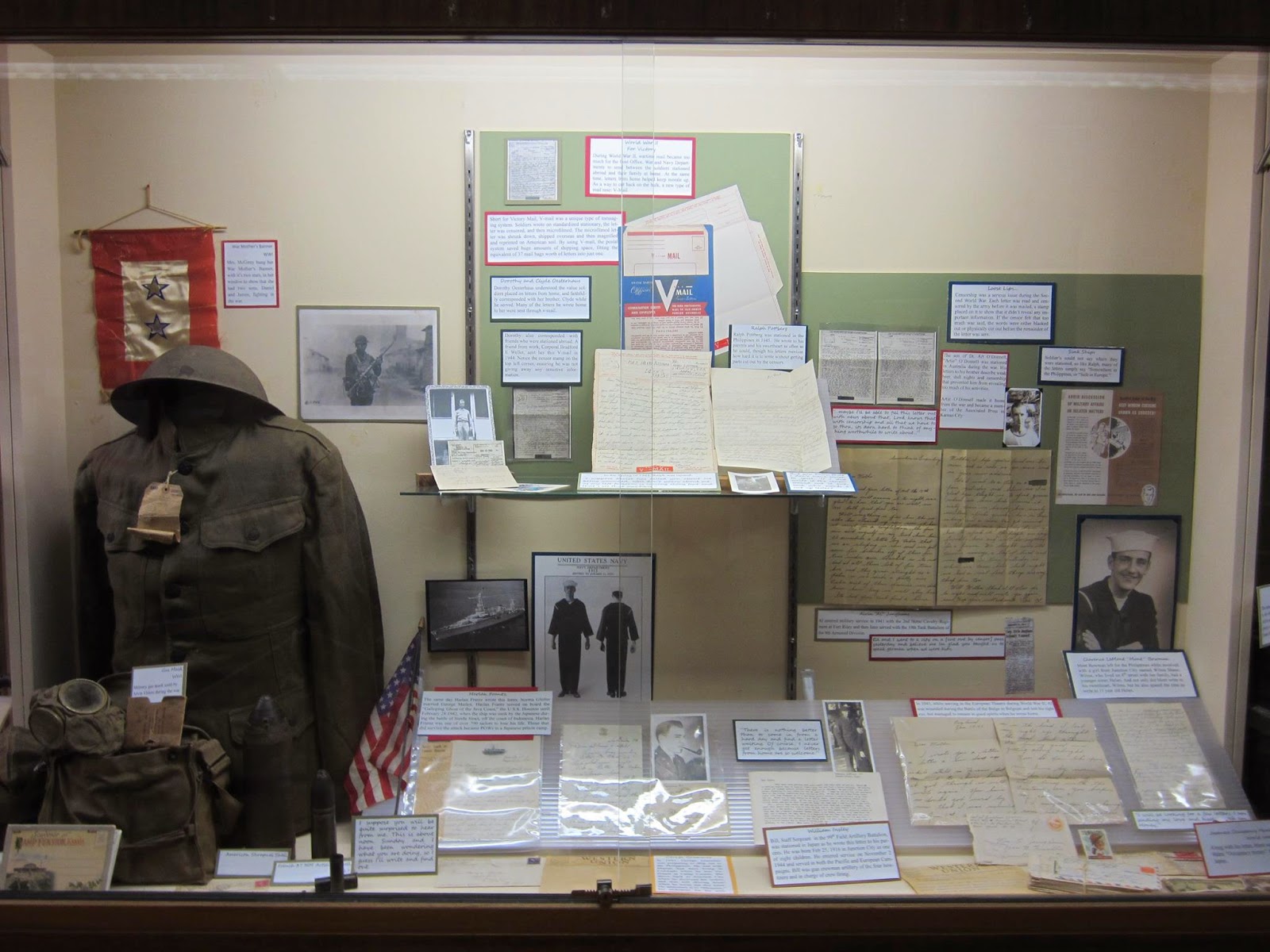“There
is nothing better than to come in from a hard day and find a letter waiting. Of
course, I never get enough because letters from home are so welcome.”
-Bill
Insley, 1945
Tucked
away in attics, closets, and basements throughout this country are millions of
letters written by men and women who have served in the armed forces. There are
also countless e-mails being written by active duty troops serving in countries
throughout the world right now. These letters are an irreplaceable record of
the sacrifices made by military personnel and their families.
Many
of these letters are also historically significant, offering eyewitness
accounts of famous battles, historic events, or encounters with prominent
military leaders. But even the more personal correspondences, such as heartfelt
expressions of affection or words of support and encouragement between
separated loved ones, offer valuable insight into the wartime experience.
Geary
County is a community with a long history of military involvement. Families
from this area have sent sons and daughters into the military from the founding
of Geary County in the 1800s to the present day, and the letters and souvenirs
they sent home helped their family and friends, and now us, connect to their
wartime experiences.
Delivery
of mail was particularly vital during both World War I and II, and soldiers and
the army as a whole relied on letters to keep up morale. Receiving well wishes and gifts from home was
one of the few comforts a soldier had on the Western Front. The majority of
them spent more time fighting boredom than they did the enemy, and writing was
one of the few hobbies available to them. For some, it was a welcome
distraction from the horrors of the trenches and battlefields.
 |
| V-Mail Packaging during World War II |
During World War II, wartime mail
became too much for the Post Office to send between the soldiers stationed abroad
and their family at home, but because it was such a vital part of morale
upkeep, the War Department looked for new ways to get letters to their
soldiers. As a way to cut back on the
bulk, a new type of mail rose: V-Mail. Short for Victory Mail, V-mail was a
unique type of messaging system. Soldiers write on standardized stationary, the
letter was censored, and then microfilmed. The microfilmed letter was shrunk
down, shipped overseas and then magnified and reprinted on American soil. By
using V-mail, the postal system saved huge amounts of shipping space, and the
37 mail bags required to carry 150,000 one-page letters could be replaced by a
single mail bag.
 | ||
| V-mail sent by Artie O'Donnell |
Letters from serving soldiers had
a powerful role, not just in keeping families informed of the well-being of their
loved ones; they also helped to sustain popular support for the war across the
home front. So, while mail was
encouraged between soldier and family, censorship was a serious issue during
both World War I and World War II. In
part this was a way to prevent the enemy finding out secret information, but it
also prevented bad news from reaching the home front and lowering national
morale.
Artie
O’Donnell, the son of local doctor Art O’Donnell, mentioned this challenge in a
letter to his brother, “…maybe I’ll be able to fill this letter out with news
about that, Lord knows that with censorship and all that we have to go thru,
its darn hard to think of anything worthwhile to write about…” Artie knew that
each letter was read and censored by the army before it was mailed, a stamp
placed on it to show that it didn’t reveal any important information. If the
censor felt that too much was said, the words were either blacked out or
physically cut out before the remainder of the letter was sent, which meant
that a soldier had to be very careful about what he said!
Whether the soldier was on the battlefield at
Gettysburg, in the trenches of World War I, or in the jungles in Vietnam, the
mail service has long provided serving men and women with a way to connect to
their loved ones. And now at the Geary County Historical Society, we are sharing
local military stories through their personal letters written to and from the
war front.
Stop by the Geary County Historical
Society to see our new exhibit “Letters Home,” now open! See examples of V-mail
and censorship, read letters of hope, fear and love written by our local
soldiers from 1890-1990 and then tell us where your soldier has been. Open
Tuesday-Sunday, 1pm-4pm, admission is FREE.
Check out this interesting youtube video for more information: http://www.youtube.com/watch?v=bntPfVSKGLE

No comments:
Post a Comment